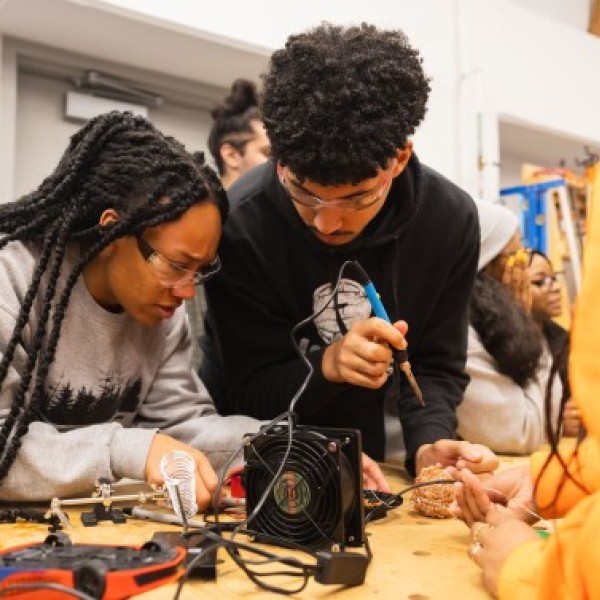Research Spotlight
Opportunities to support
The impact of giving
News
The Big Red Adaptive Play and Design Initiative has brought independence and joy to local children with disabilities – and has created space for the engineering of assistive technologies at Cornell.
News
Cornell researchers and administrators joined industry and government partners to celebrate the opening of new animal respiration stalls in the Department of Animal Science.






